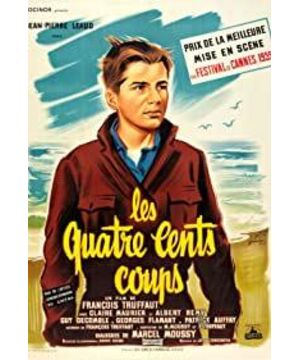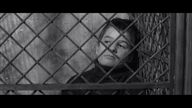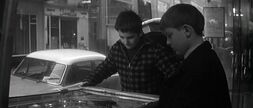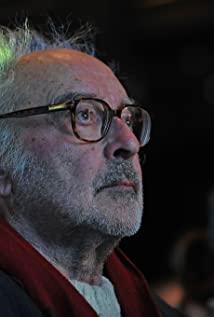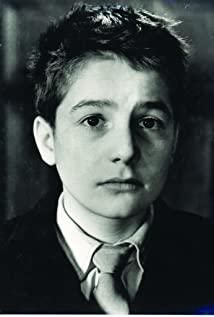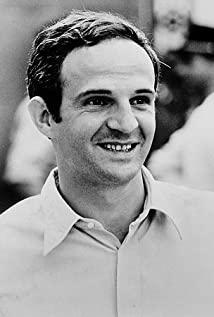Reprinted from: The Cultural Value and Historical Limitations of "French New Wave Movies"--Zhu Hong--Contemporary Film Invasion and Deletion
Preface
A trend of literary and artistic thought can immediately make waves around the world, and a long time later, it will be able to cross the barriers of culture, race, and religion, and bloom in different regions with unique charm and more splendid art. This is the French "New Wave Movies". ". It is still too early to conclude the conclusion of this literary movement, and its international influence continues to ferment. In the film industry and even in the cultural world, the French "New Wave Film" and its peripheral effects are comparable to the Renaissance in Europe. Periodically assessing the cultural value and cross-cultural influence of French "new wave films" is of reference value for Chinese films that have been deeply influenced by them. Summarizing the previous studies on French "New Wave Films" by the academic and industry circles, we can come up with the following consensus:
(1) From the perspective of cultural concepts, the French "New Wave Films" have integrated films with other art forms more organically, allowing films to truly enter the modern cultural pattern, and even become the leading artistic trends and ideas in some aspects. Vanguard.
(2) Effectively enhance the cultural level of French film audiences, give the French film evaluation system the right to speak internationally, and films have become part of the strong national soft power. Today, in various film festivals, the artistic prestige of the Cannes Film Festival is equal to or even surpassed by Oscar.
(3) Constructing an influential film value system in the world, establishing the core position of humanism, humanitarianism, and internationalism, and proposing the noble mission of film, requiring films to reveal the operation of society and the true meaning of human nature.
(4) Established the dominant position of documentary aesthetics in film aesthetics, and improved the cultural quality of the film. High-quality philosophical films appeared in the French modern film movement. Films are no longer an entertainment tool, but a method of thinking.
(5) Greatly enriched and developed the film narrative symbol system. It broke the deadlock in the narrative mode of feature films at that time and introduced the concept of diversification, which was a subversive impact not only on American films, but also on existing French films. As far as genre movies are concerned, its innovative creation makes genre movies no longer unique to the United States, but become the common property of world movies and the narrative basis of film fiction.
(6) The author theory was established, which fundamentally shook the psychological model of film production and viewing in France and many countries in the world. In terms of performance, he explored the limits of theatrical performances and non-professional performances, and established the leading position of life-oriented performance in French and European film performance technology. In addition, the "New Wave Movies" tried to overthrow the star system and weaken the role of performance in film production and ideology. This is not only an inevitable stage of film development, but also corresponds to the development of photography, recording, and scenery technology at that time, and the cultural level of the film production team. The resulting performance improvement.
French "New Wave" films represent the pinnacle of French film development, but France has not continued its previous glory. It is a historical regret to restore the hegemony of early film communication. In addition to the reasons for language communication and the scale of the film industry, the author believes that there may also be the following reasons.
1. Why has the director-centered system not really replaced the producer as the dominant model?
The author theory proposed and practiced by the French "New Wave Films" is that the director is a part-time screenwriter, controls the funding and personnel rights, and is the only leader of the crew. This proposition has a certain degree of rationality. The director can fully grasp the artistic quality of the work and guarantee the artistic quality of the work. But even today, its drawbacks have been fully exposed.
Author is a concept borrowed from literature. Truffaut asked the director’s authorship to be analogous to that of a literary author, and the prerequisite for the establishment of this identity is the integration of editors and directors. It actually highlights the importance of screenwriters in the entire film and television creation. In narrative theory, the closest to the concept of author is the narrator. At the beginning, due to lack of scientificity, literary narrative theory abandoned the concept of author and replaced it with the concept of narrator. It extracted the part of the concept of writer and author that participated in narration for research in order to prevent excessive interpretation of writers. The causal connection between personality, life and the content of the work. The narrator is the person who tells the story. In the fictional art type of novel, he can be the author or the character in the novel. Genette made a detailed division of the identity of the narrator in the novel: According to the distance between the narrator and the narrative content, he divided the narrator into the narrator within the story and the narrator outside the story, and the narrator outside the story was divided into the text outside. The narrator, the author of the novel, or a character in the novel, but he does not participate in the story action, such as the character who tells the story in The Thousand and One Nights. According to the characteristics of different media, the concept of narrator has the characteristics of its own media. When distinguishing the narrator's identity, the standard we use is his (her) relationship with the story told by the text. The difference from the literary narrator is that the film and television narrator has only one "big imager", and the way it organizes the narrative is completely different from that of the literary narrative due to the different media.
The "big video artist" is a functional complex, including screenwriters, directors, actors, and producers who make overall or certain decisions for the final artistic presentation of the work. This concept first came from the French scholar Albert Lafee, who was engaged in film narrative research, and was later used by narrative theorists such as André Godrow and François Jost. Film and television narrative is a collective narrative, which is the result of a huge industrial chain. This production characteristic determines the two fundamental characteristics of a major video artist as a narrator: it is an outsider of the story, and it is a collective narrative. This kind of externality and neutrality explains why the main composition of the narrative of film and television drama is genre, while the concept of genre in the novel is relatively much broader. Correspondingly, the previous view of overemphasizing the exclusive director of the film style lacks rationality. The overall style of a film and television drama text can be defined from several major perspectives such as story mode, modeling style, and performance style. The aesthetic connotation of each dimension will be determined by the screenwriter, photographer, sound engineer, and editor. , Artists, and actor teams are very different.
Movie works should be defined in the name of the team rather than the director. Today, film production around the world is basically evenly divided between the director-centric system and the producer-centric system. At present, naming the director's name before the work should be seen as an affirmation of the entire team led by him (she), rather than the individual director. In order to maintain the uniform style of film and television works, the creative team needs a unified leadership. This leadership may depend on the specific circumstances of the crew. Some crews are leading actors in performing this role, some are producers, some are photographers, and in most cases. The result of multiple forces seesaw, compromise, and compromise under the name of the director as the core. We need to regard this compromise and compromise as the normal state of film expression, and it is unreasonable to overemphasize the director.
From the perspective of industrial development, the director-centered system emphasizes the individual play of the editors and directors, and the expression of artistic concepts, which means that the audience needs to stand in the position of appreciation and judgement, rather than the position of demand-side customers. The main part of French films today is the author's film, and the author's film is gradually becoming a film about film, or a film about art. This kind of film has gradually entered the category of niche and elite films, and it no longer refers to society, politics, and real life. The director-centered system has gradually become a way for directors to express their narcissism and autism. Excessive speculation makes the film increasingly deviate from its original intention and emotional communication function, far away from fashion, idols, and audiences. Because in the face of the author's film, the audience must make their own judgments on the values and ethical positions of the film, which requires the audience to have a high level of ideological and artistic judgment. As a result, audiences who don't care about artistic ideas and are not comfortable with individual expression—that is, most audiences—reject the author's film.
Doubts about authorship in French theoretical circles appeared in the 1990s. Dominique Jamet, an authoritative French film critic, once defined the current French film creation like this: "We, what are we doing? Some films made for the circle of friends are too elite and lose the public and are too clever. It is not clear, too rustic and not international, too cautious and without shocking power, too self-centered and lacks universal meaning...".. The author's film neglects communication and sharing (that is, the market). In other words, making one's own work either died of a fetus or suffered a cold reception at the box office, in general, caused the gradual shrinkage of the entire industry. In terms of volume, when a region or country’s movies are dominated by author movies, it will fall into a vicious economic cycle. The large amount of funds drawn in by movies with low or no box office will not be recovered, and the recycling of funds is in vain. , And then invest again. At the same time, in terms of international communication, such films are alienated or banned by a political system that desires consistent values and ethical-oriented propaganda.
The public's demand for fictitious consumption does exist, and movies are not taken up. Over time, other forms of media (TV dramas, web dramas, or other new technology carriers) will naturally meet them. If we also talk about democracy and fraternity in the field of art, we need to respect the artistic needs of the general public on the premise of acknowledging the objective laws of art that are high and low.
Entertainment itself requires general knowledge, so that there will be a market. At the same time, as a form of mass entertainment, the film also needs to transmit the concept of social integration to the audience. At this point, the political demands (to mobilize the masses and educate the masses) are reasonable and conform to the laws of sociology. The "grand narrative" films "Is Paris Burning?" (1966) and "Shadow Force" (1969) that existed during the French high-quality film period have basically disappeared in today's French film creation. What disappeared with it was the heroism and individual heroism in the movie. On the other side of the ocean, the value output of Hollywood movies and the effect of "global integration" in cultural concepts are obvious to all.
Mike Wayne, a British scholar, compared the development patterns of American and European films from the perspective of cultural strategy and pointed out the ideological advantages of American films, and pointed out the disadvantages of European films that emphasize individuality and differences: "Excessive emphasis on'difference' Compared with the practice of emphasizing cultural characteristics, the method is more convenient, but it is not conducive to the comparison, connection and unity between different cultures....Why is cultural theory reconciling cultural characteristics and big stories, individual and general, local and Will it feel so difficult in the process of globalization, individuality and commonality? This problem has its theoretical and political roots. The tendency of contemporary theoretical circles to blindly worship differences is rooted in the post-structuralist interpretation of Saussure's linguistic theory... Such an ontological concept model that is completely isolated from material interests and social existence cannot support a lasting form of artistic expression that can maintain unity, group, and contract."
For a long time, French film authors have neglected the social cohesion and spiritual social appeal of films while pursuing differences and individuality. This cannot but be said to be a pity.
2. Why can't documentary aesthetics be the only or dominant aesthetic concern of movies?
In today's France and even the whole of Europe (especially the continental part which is deeply influenced by French film culture), the film is still dominated by documentary style. It reflects the absolute dominance of documentary aesthetics, but it also exposes the neglect of fictional ontology by the authoritative European film and television critics represented by France. The author believes that documentary aesthetics contains two dimensions: (1) Taking real life as the theme; (2) Taking daily life and de-stylized audio-visual language as the way of expression.
Technology serves the content, and we focus on the first dimension. From the perspective of movie values, we need to answer: Is the highest value of movies reflecting real life? The question of the relationship between realism and fiction is the fundamental issue of feature film creation. Regarding the social attributes of fiction, the author combed the views of Eastern and Western humanistic theories in "The Ethical Connotation of Movies and TV Plays", and pointed out that movies and TV plays belong to social games. "This not only refers to the hypothetical nature of its game rules, but also refers to the fantasy nature of its game methods. That is to say, the fiction of film and television dramas is the result of the externalization of mental activities-that is, the externalization of imagination." "From the level of education, film and television The interpretation of the work is to reversely outline a social structure constructed by the author through plots and characters, and it is this ability to understand life that ordinary audiences are trained in movie watching activities. "Realism is a kind of realism. Style ruler, documentary aesthetics is a pole and a state on the axis of text style.
My article "The Theory of Film Style" has examined the narrative research of film theory in the past four decades under the framework of a multiple theory, and analyzed two different research paths of film style in the research of film theory. The genre research of the American school represented by Baudwell and the author theory proposed by the French "Cinema Manual" school pointed out the difficulty of author theory in defining the style of the work. The author once used Bazin's realism as a debate, and pointed out that the notion of documentary aesthetics is the fetters of the development of film. Documentary aesthetics is not the only film, and should not even be the dominant value. The dream function of movies requires constant philosophical re-understanding. The status quo of existence is ugly: "The ultimate foundation of reality is something terrifying... Freud defined reality as the kind of thing that functions as an obstacle to desire:'ugliness' ultimately represents existence itself, Representing the resistance of reality, reality has never simply brought itself effortlessly into our model. Reality is ugly; it’s not supposed to be there, it hinders our desires.” The development logic of civilization itself is a It is impossible for humans to challenge the process of moving away from the "ugly" human reality and the "ugly" external world (natural and social) along the path of "idealism". This process was tortuous, and from time to time experienced retrogressive countercurrents and excessively overspeed leaps. There has never been an absolutely correct path, but no matter how the Eastern and Western philosophies are summed up, the development of history is always adjusting the "left" and "right" lines. As far as the political, economic and cultural development context of the countries in the world in the 20th century is concerned, the overall adjustment is from the leftist line to the right. The intellectual elite, that is, the class that leads the development of the world, realizes.
Fiction reflects the reality of life as well as the reality of the soul. The dream atmosphere it creates not only makes people forget the reality, but also inspires people's desire to plan for a better future. Together with other cultural activities, it constitutes a barrier for humans to resist ugliness, and is a way for humans to pursue a perfect personality and a perfect society. Audiovisual language is another means that mankind has found after words and pictures that can express and reproduce rich spiritual activities. The technology of audiovisual language can be continuously improved, and it becomes possible only after "liberating the mind" and attaching importance to the legitimacy of the expression technique. In the French modern film movement that includes "new wave movies", many modern and postmodern narrative forms have actually appeared. For example, Godard’s "Madman Pierrot" (1966) created a post-modern narrative carnival. The logic of the story was largely abandoned, the plot was dislocated in time and space, abstract and absurd, and the film’s form of expression was more free. , Collage, you can see a lot of ideas and methods that still guide the creation of avant-garde films and experimental films.
French films may regard documentary aesthetics as the most representative of the spiritual core of French films, and intentionally or unconsciously marginalize non-documentary creations. This tendency can also be clearly reflected in the creative trajectories of several new generation directors of the "New Wave". For example, director Jacques Duwayon, his early works actually have mixed genres (science fiction films, crime genre films, including absurd and grotesque narratives), such as "01", but then he only stayed in the category of documentary aesthetics. . From a macro perspective, this gradual "narrowing" trend is even more obvious. French director Francis Giro, who started film creation in the mid-1970s, has launched several brilliant works: "The Guilty Trio" Le Trloinfermnal, 1974), "Rene la Canne" (Rene la Canne, 1976) , "The Barbaric State" (L' Etat sauvage, 1978), "The Woman Banker" (La Banquiere, 1980), etc. "The Guilty Trio" inherited the weirdness, weirdness and black humor of Franco's films of the previous period, and also fully absorbed the cultural elements of American noir films, with breakthroughs in the times and individual characteristics. The "Black Shop Rhapsody" (Jean-Pierre Genay, 1991) with the same style of thinking is also "the fragrance blooms outside the wall", and its grotesque style inspired American and Eastern (including Chinese) movies. However, Genay, like his predecessors, Luc Besson and Jacques Arnault, once met with cold eyes in the French critics because of the "Americanization" of the work style. We believe that film festivals, film reviews, and film education are important links in the film ecology. When they do not maintain multiple concepts and monopolize the value system with a single value, it is difficult for the film ecology to circulate normally. A hundred flowers bloom, a hundred schools of thought contend, this is the original ecology of a healthy movie.
3. Should there be a degree of freedom of artistic creation? However, should this kind of blossoming and contending of a hundred schools of thought be a state of complete inaction and laissez-faire social supervision?
The modern film movement centered on French "New Wave Films" has carried the banner of freedom, trying to break all taboos in the political and ethical fields, and pursue the complete liberation of artistic expression. The French national film policy has gone through a process from complete regulation to complete deregulation in the twenty years after the "new wave of movies". Although the national management method has obvious social effects, the cost and risk of rebound and supervision are relatively high, because the operational effectiveness of the regulatory system is restricted by many factors. The level of individual regulators and the improper measures of individual measures will damage the credibility of the regulatory system. , And even pose a threat to the overall stability of the country that guarantees the system.
In the 1970s, after suffering the impact of the "Red May Storm", the French National Film Center no longer banned special sensitive themes, but implemented a film classification system. Films of different levels are screened for audiences of different ages, and the broadcast policies of other broadcast platforms (television, Internet) and the film classification system are in line with each other. It is true that Freud pointed out from the perspective of psychoanalysis that the development of civilization is a confinement to human nature. In fact, since the "Enlightenment" in the West, the right way of culture seems to be leading human society out of the imprisonment of civilization on human nature. This trend of freedom reached its climax in the twenty or thirty years after the Second World War. The French "New Wave Movies" and "Red May Storm", the American anti-war movement, and the 70s culture including "sexual liberation" Trends are all signs. But this pursuit of freedom has reached a bottleneck today, and its negative effects have begun to appear more and more. In the field of film and television drama creation, complete liberalization means that the correctness of the ideological content of the work depends on the self-discipline of the industry and the self-restraint of individual rationality, that is, individual self-consciousness. The choice of themes and the content of ideas are completely left to the creator. At this time, there are two main problems. One is that the author and director are pursuing the profoundness of their thoughts, and they are not thinking about whether they conform to Taiwan’s basic ethical and moral positions and laws and regulations; the second is the excessive freedom and the exposure of human nature in film and television dramas. Nourishment of decadent emotions.
In the West today, the cultural field has reached a state of freedom that is rare in history. But unprovoked resistance, rebellion, and rejection of ethical order do not seem to bring more happiness to people, but instead lead people into decadence and nothingness. Fundamentally speaking, this is a problem of freedom itself. When Zizek analyzed the theory of Schelling, a German idealist philosophy master, Schelling’s most outstanding contribution was to study the reasons why the initial human society changed from a completely laissez-faire anarchy to an organized society. Schelling used the concept of "How God was born" to explain the process by which humans realize the importance of social organization and voluntarily invent and accept ethical laws. This process is a process in which mankind walks out of the "depth of freedom" and establishes and accepts the constraints of the laws of civilization. "The abyss of freedom or the horror of freedom throws people back into a world of ethical beliefs, because this world keeps the horrors of the real and symbolic worlds out of the door, and gives people a stable spiritual home. This world is a safe world. Is a world of warmth and love. Zizek pointed out the psychoanalytic value of this process. He linked Schelling’s theory with Lacan’s theory and pointed out that the real world in Lacan’s "Three Realms" corresponds to "freedom". "status.
Freedom is an ideal and an unattainable goal. Once you truly reach this realm, you can only feel the cold and void of death: "The true face of the real world is the valley of death, the darkness and cold of pure matter. , And people who pursue extreme enjoyment can easily encounter it." Today's outlook on life and art in the West with freedom and enjoyment as the core can be said to be infinitely close to the "real world" of doing whatever you want. Following Zizek’s thinking, from the perspective of desire, the development process of human civilization can be divided into four stages. The first stage is the "chaotic" stage before civilization, which is the first golden stage of desire; The two stages, from taboos to religion and the legal system, are the stages in which mankind invented social means to suppress desires; since the "Enlightenment" it has gradually been questioned and attacked until it reached its peak in the 1960s and 1970s after the "World War II". It is the third stage of liberation of desire; as individual liberalism has developed to its extreme and brought about various problems, human beings are now gradually entering a new stage of desire management guided by reason. The first two stages and the latter two stages in which human civilization is currently undergoing a transitional state are mutually causal.
"Westernization" is faster than ours in Japan and South Korea, and it seems that they have been or are sliding into the "freedom abyss" at different speeds. Of course, the cultural contexts of different cultural regions are not the same, and they have their own internal trajectories and logic. At this moment, we need to sum up the experience and lessons of the first three stages that the West has experienced, and establish a more scientific desire management mechanism, so that cultural activities including movies can truly adjust the human spirit and coordinate the interpersonal relationship. effect.
View more about The 400 Blows reviews


